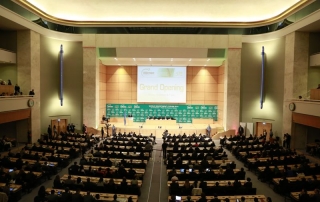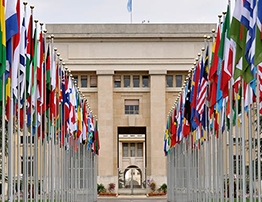Opinion: India tries, and fails, to strengthen sovereignty and human rights in international investment law*
In late December 2015 the Indian government released the final text of its new Model Bilateral Investment Treaty (BIT). A draft text had been released in March 2015 and opened to public consultation. Going forward, India will try to use this new Model as a basis for its BIT negotiations with other States. As this opinion piece argues, the final text represents a missed opportunity. It reflects the standard features of BITs as we know them today, and has removed important features that would have reinforced India’s sovereignty and the protection of human rights.
The IHRP issues recommendations on investment for the Colombian National Action Plan on Business and Human Rights
On 26 November the Investment & Human Rights Project (IHRP) issued its recommendations to the government of Colombia to address investment policy in its National Action Plan on Business and Human Rights. The recommendations are part of the IHRP’s work to support the implementation of the UN Guiding Principles on Business and Human Rights State Duty to Protect (DtP) and improve guidance available to States on foreign direct investment and investment policy in the development of National Action Plans (NAPs).
Human Rights and Investment Policymaking: Relevance and Integration
For the first time in its history, the World Investment Forum hosted panel discussions on Investment and Human Rights at its October 2014 event. These panel discussions, designed and moderated by the LSE Investment & Human Rights Project, offered a scoping of the key issues in this area and aired the perspectives of a wide range of practitioners. Panelists represented views from the international arbitration practice, the private sector business community, civil society, international institutions and academia. One key outcome of the panels is that much more work needs to be done to build understanding around how investment impacts people and their rights. This IHR Project background and summary captures the important discussions.
The New UNCITRAL Rules and Convention on Transparency
The new UNCITRAL Rules and Convention on transparency offer States the opportunity to make investment arbitration more open and accessible to the public. States that take this opportunity make an important move towards bringing their investment policy in line with commitments reflected in the UN Guiding Principles on Business and Human Rights (UNGPs). This expert article written exclusively for the Investment & Human Rights Learning Hub explores the intersection between UNCITRAL’s work on transparency and the UNGPs.
Investment and Human Rights in Afghanistan
The case of Afghanistan is emblematic of countries in the throes of armed conflict, in which both human rights and investment present significant protection challenges. Lack of resources and government capacity, fluctuating commitment of the international community, and collapse of the policing and judicial systems are but some of the challenging characteristics of the volatile Afghan context. As outlined in this snapshot, as much as investment is needed in Afghanistan, the country’s extreme context presents some significant human rights risks for foreign investors.






